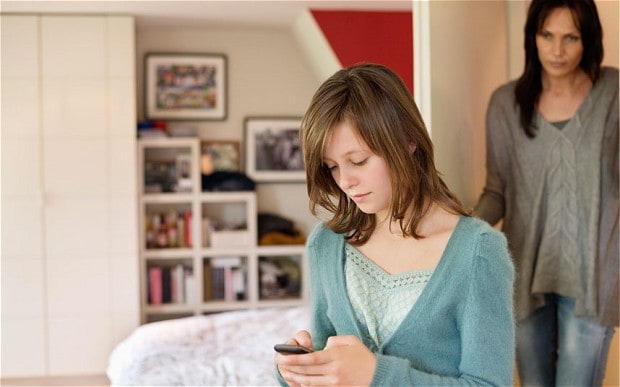
Parents play a crucial role in keeping their teens from the harmful influence of the web
By Dimitar Boshnakov
A survey carried out in 2012 reveals that almost three-quarters of teens ‘hide their online behavior’ from their parents. Certainly, by controlling the way children surf the global net, parents can protect their kids from trheats like cyberbullying and sexting, to name but a few. Monitoring adolescents’ involvement in social media is a useful tool for parents to prevent their children from getting exposed to inappropriate content such as violence and pornography even though some assert that this violates the teens’ right to privacy.
Whilst there are numerous reasons to monitor teens’ Internet use, arguably among the most relevant ones is that in this way parents are warned if someone may be bullying their children. It can also indicate whether their own kids have been bullying someone else. Emotional distress, isolation, poor grades and refusing to go to school are only some of the potential consequences faced by the victims. According to the Law Dictionary, victims of cyberbullying ‘are more likely than their peers to abuse alcohol and drugs, have physical and emotional health issues, and may suffer from low self-esteem’. This proves the urgent need for mums and dads to get involved and find out as soon as possible how they can follow closely their children’s online behaviour.
Furthermore, the unrestricted access to the Internet puts millions of children worldwide in danger of watching violence and pornography or of getting involved in suspicious or illegal activities such as drug abuse, theft and robbery. In addition, social media greatly increase the likelihood of teenagers developing relationships with the wrong people. For example, someone’s ‘friends’ could try to persuade them to share their nude photo online – an action known as ‘sexting’. Then, if the photo is forwarded in the public space, the consequences for the victim can be disastrous and a suicide attempt might follow. Therefore, parents play a crucial role in keeping their teens from the harmful influence of the web.
It is often argued that children should be allowed to control their own online presence, which teaches them how to be accountable. Some even claim that social media freedom directs kids how not to behave and what not to share. The supporters of this idea compare the Internet use to operating a car. In the beginning young drivers are required to drive with an adult but then comes a moment when the kids are on their own. However, this argument is wrong because driving is irrelevant to surfing the net. The dangers on the road are usually obvious – a busy crossroad with traffic lights or a narrow one-way street, whereas in numerous situations, going online is hazardous and enjoyable at the same time because the risks often remain hidden while adolescents are having fun. The 2012 survey points out that half of teenagers admit ‘they would think twice about their online activities if they knew parents were watching’. Thus it becomes evident that adults ought to be totally aware of what their teens are doing every single moment while surfing the net.
In concluson, in order to ensure their teens’ online safety parents must stay in the know about kids’ actions, routines and communication in the world wide web. If mums and dads control where their children go and who they meet with, they also have to monitor how those children behave on the Internet. Although adolescents need privacy and have to learn to be accountable, they are still not mature and experienced enough to be left on their own in front of the screen with all the dangers social networks pose. Very often they need help with their decision making process and parents must be able to notice this need and be the first ones to answer it.

